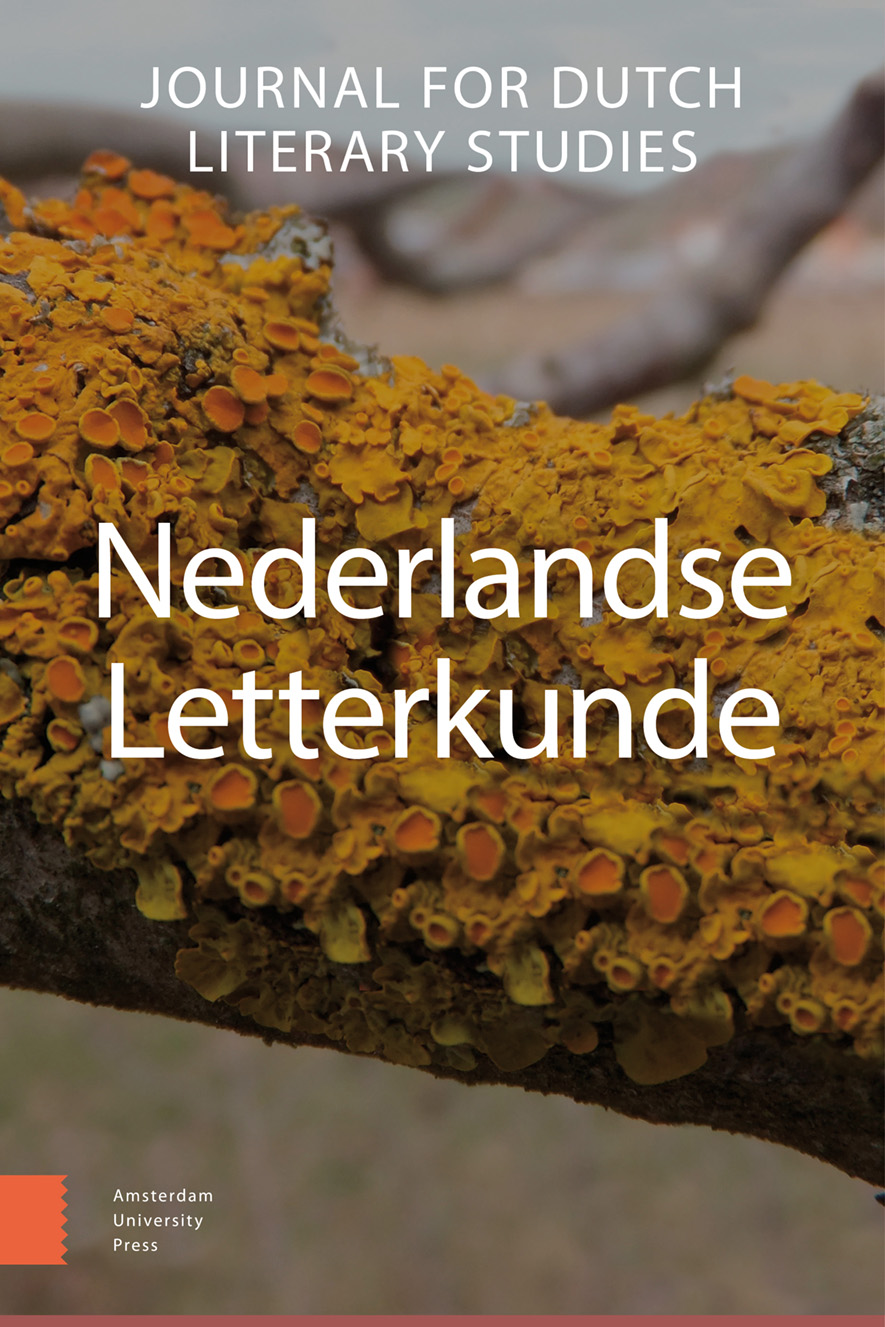- Home
- A-Z Publicaties
- Nederlandse Letterkunde
- Previous Issues
- Volume 27, Issue 1, 2022
Nederlandse Letterkunde - Volume 27, Issue 1, 2022
Volume 27, Issue 1, 2022
Taal:
Nederlands
-
-
Over de drempels van geletterdheid: laaggeletterde ouders helpen hun jonge kind te ondersteunen
Meer MinderAuteurs: Jeanne Kurvers & Roel van SteenselAbstract Family literacy programs aim at supporting parents in stimulating their young children’s emergent literacy development. Reviews of effect studies in general show positive outcomes, while the effects on children from low socioeconomic families are mixed. The literacy level of parents, however, is mostly not taken into account in effect studies and therefore it is unclear what types of activities might work in families wher Read More
-
-
-
Meeleesclub voor laaggeletterde volwassenen: een toepassing van het leeshongermodel
Meer MinderDoor Mia StokmansAbstract International research indicates that the number of adults with very low literacy levels is rising in the Netherlands. Illiterate adults may feel the instrumental need to develop their reading proficiency. However, for them reading is associated with negative feelings such as shame and frustration. Additionally, they do not have the motivation, knowledge or skills to find an interesting book or paper and, furthermore, they Read More
-
-
-
Werkt De Weddenschap? Opvattingen van (v)mbo-docenten en vmbo-leerlingen over leesbevorderingscampagne De Weddenschap en leescoaches DIO, Famke Louise en Jeangu Macrooy
Meer MinderAuteurs: Jeroen Dera & Eva KeulenAbstract In 2020, Stichting Lezen (a Dutch institution aimed at reading promotion amongst youngsters) announced that three Dutch celebrities would star in its campaign De Weddenschap (The Bet): rapper DIO, singer/vlogger/model Famke Louise, and singer-songwriter Jeangu Macrooy. This article examines how teachers and pupils in preparatory secondary vocational education evaluate this campaign. First, the results of a q Read More
-
-
-
Onderzoekend lezen: geïntegreerd leesonderwijs en de rol van de leerling als betekenisgever
Meer MinderAuteurs: Yra van Dijk & Els StronksAbstract Current Dutch reading education does not suffice for deep understanding of texts. This problem calls for a solution that (re)combines literary education and reading comprehension –the two pillars on which Dutch reading education is built. The goal is to introduce a way of reading that requires a different set of skills from students as active ‘meaning makers’, thus putting interpretation back on the map. In this articl Read More
-
-
-
Ieder zijn eigen Saïdjah en Adinda? De narratieve betrokkenheid van vwo-scholieren bij verschillende bewerkingen van Multatuli’s Max Havelaar (1860)
Meer MinderAuteurs: Emma Broekhuizen, Jeroen Dera, Frank van Meurs & W. Gudrun ReijnierseThis study investigated secondary-school pupil responses to modern adaptations of a historical literary text. In an experiment, 167 Dutch pupils each evaluated one of five versions of a fragment of the canonical Dutch nineteenth-century novel Max Havelaar (1860): original, modern Dutch translation, simplified modern Dutch version, Spike and Suzy comic strip, and graphic novel. Pupils first expressed their opinion about th Read More
-
-
-
‘Doe je best op school’: Nederlandse hiphop in het literatuuronderwijs
Meer MinderDoor Aafje de RoestAbstract Dutch youth have been hard to enthuse for literature and reading in recent years, both in private and educational settings. At the same time, however, they are highly attracted to (primarily Dutch-spoken) rap, an originally US-American music genre with literary features. In the US, elements of rap and its accompanying hip-hop culture are fruitfully integrated into literature classes to enthuse youth for reading. The c Read More
-
Volumes & issues
Most Read This Month
Article
content/journals/13845829
Journal
10
5
false
nl


